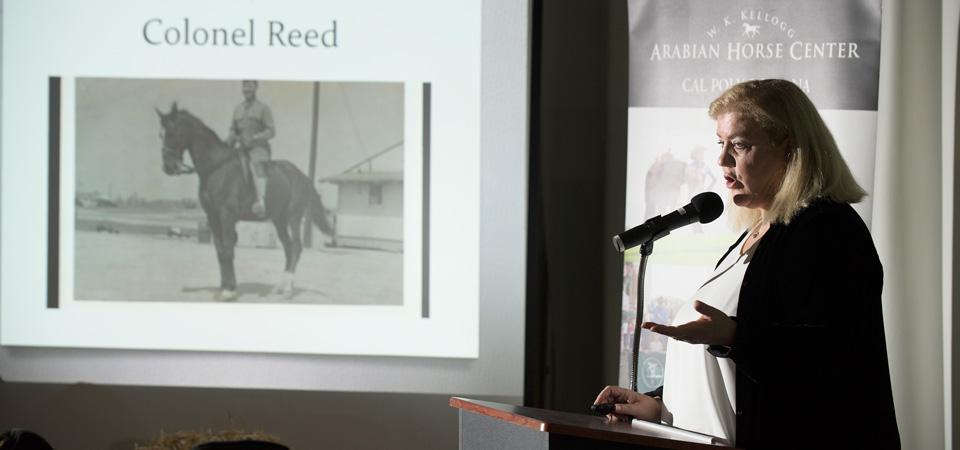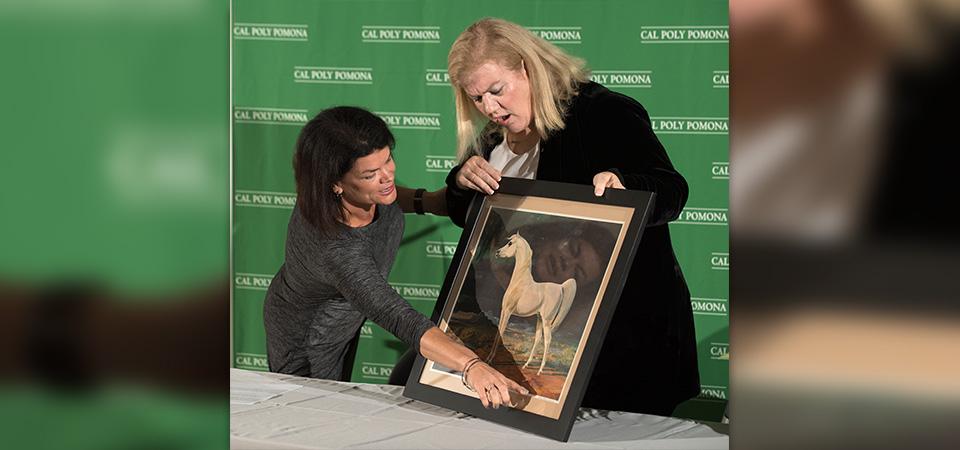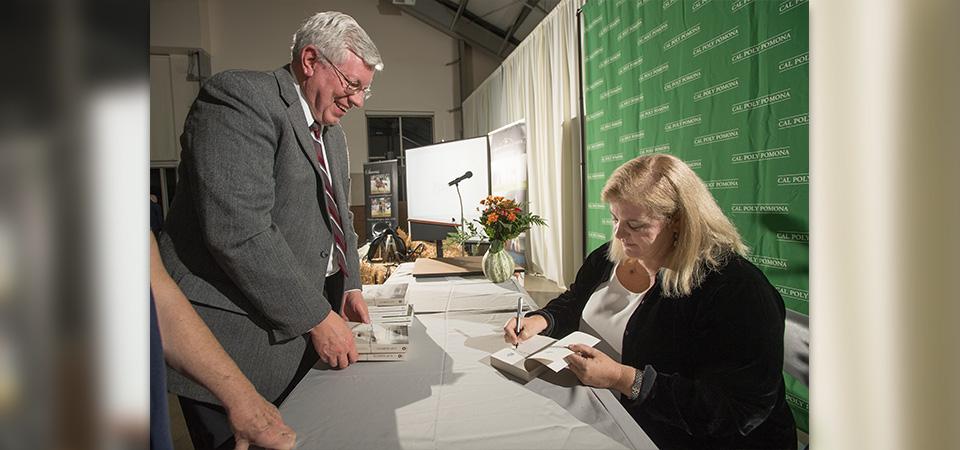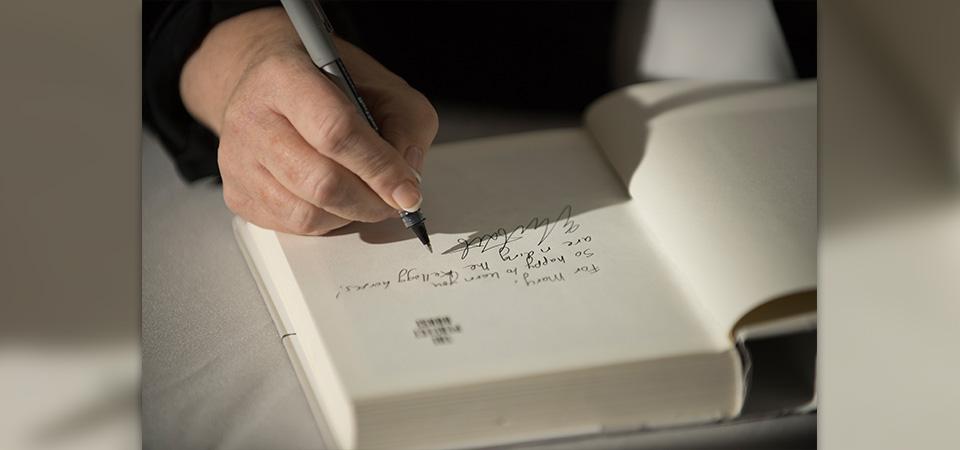"Perfect Horse" Author Shares How Arabians Were Rescued, Brought to Pomona
Slideshow
This slideshow contains 5 slides that will change every 8 seconds. The first button is to play and pause the slideshow, followed by buttons to go to the previous slide, next slide, or choose individual slides.
-
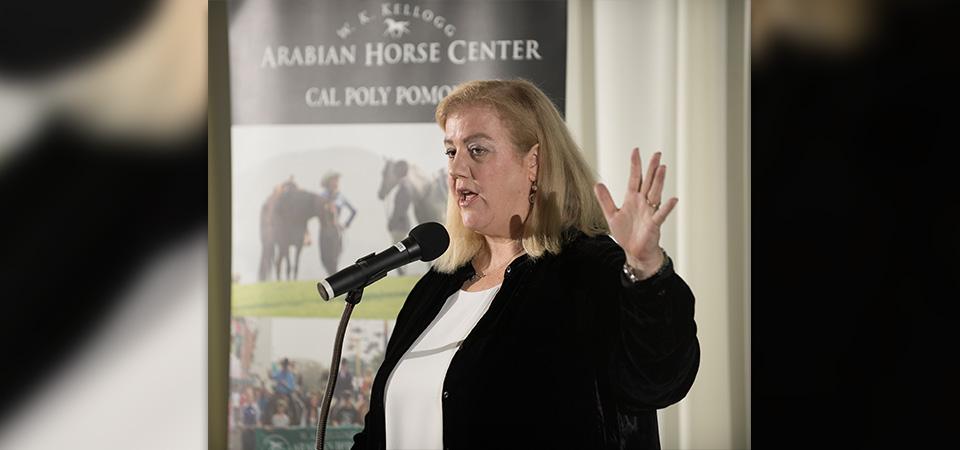
Slide1
Elizabeth Letts, author of "The Perfect Horse," speaks about how Arabian horses were rescued from Nazis at the end of World War Two and brought to the former W.K. Kellogg ranch in Pomona.
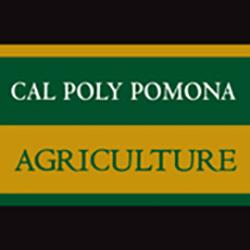
In the last days of the Second World War, U.S. troops mounted a daring mission to rescue Arabian horses from Nazi Germany – horses that they would later bring to W.K. Kellogg’s former ranch in Pomona.
That story is the subject of New York Times’ bestselling author Elizabeth Letts’ latest book, “The Perfect Horse.” Letts spoke about the book to a crowd of around 200 people at a Nov. 9 event at AGRIscapes sponsored by the W.K Kellogg Arabian Horse Center.
During the war, the Nazis had captured Arabian horses with the goal of breeding the perfect
With his country on the brink of defeat, a captured German asked U.S. Army Col. Hank Reed to rescue the horses; otherwise, Russian soldiers who were advancing into Germany, might seize them as war bounty. Reed agreed.
“‘We were so tired of death and destruction, we wanted to do something beautiful,’” Letts quoted Reed as saying.
A small group of U.S. soldiers mounted a desperate mission behind enemy lines and rescued the horses, including 22 Arabians that were eventually shipped to Kellogg’s former winter ranch in Pomona. The breakfast cereal magnate had raised Arabian horses on the ranch, but the U.S. Army was using as a quartermaster depot during the war.
Letts discovered the story while researching her book, “The Eighty-Dollar Champion.” She came across a pamphlet titled “Array of Horses,” which was a 1946 parade directory that showcased Arabians from Poland that
Scribbled on the side of the pamphlet was “These are the most extraordinary horses in the world.” Letts was immediately intrigued, curious as to why there were horses in the navy, and quickly stowed the pamphlets in her notes for later research.
After finishing “The Eighty-Dollar Champion,” Letts began researching the history of Arabian horses in the war and utilized the W.K. Kellogg Arabian Horse Library at Cal Poly Pomona for a great portion of her research.
Following the war, the U.S. Army turned over the Kellogg Ranch to the U.S. Department of Agriculture, which subsequently sold it to the W.K. Kellogg Foundation.
The foundation then donated the ranch to the state of California for use as a university campus on the condition that it maintain the Arabian horse herd and the Sunday Horse Shows that Kellogg had held at the ranch for the public.
That campus became Cal Poly Pomona, and the Arabian horses are now part of the W.K. Kellogg Arabian Horse Center. Almost all the Arabians at Cal Poly Pomona can trace their lineage back to the horses that were rescued from the Nazis.
“Kellogg was such a visionary to say, ‘We are going to protect the horses in perpetuity,’” Letts said. “Somehow he was able to understand how much human history was written in the DNA of these Arabians.”
Students who attended the event found Lett’s remarks and book fascinating.
“It sheds light on a dark time in our history, so it is great to have something positive come out of that,” said Shannon Deskin, a fourth-year master’s degree student in agricultural science.
Deskin, who rode in Cal Poly Pomona’s Intercollegiate Horse Show Association team and now coaches Mt. SAC’s ISHA team, added that she enjoyed how Lett’s story connected with the university.
“I have been involved with horses for a very long time and like the Arabian breed,” she said, “so it is nice to connect with them more.”
Amy Stubblefield, a fourth-year economics major who is the captain of the university’s equestrian team, a member of the Arabian show team, and a student groom at the horse center, read Letts’ book and called it “super interesting.” It helped her realize how important W.K. Kellogg was to the university.
“He saved all of these horses, and they have such a big impact on the horses we have today,” she said.
- Huntley College of Agriculture student Madeline Dolan wrote this story

